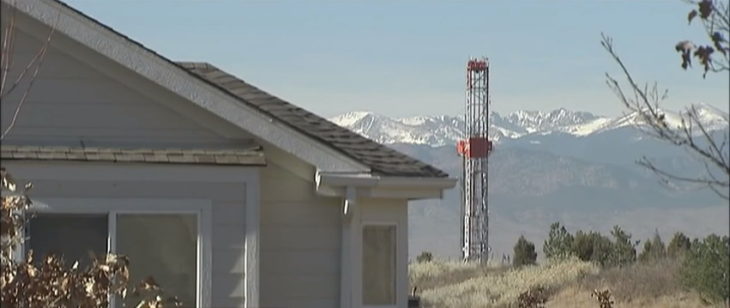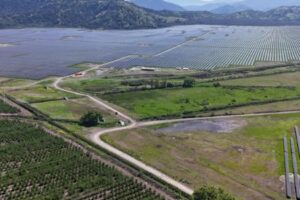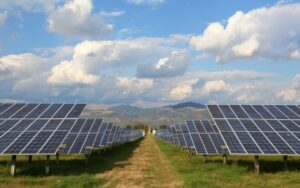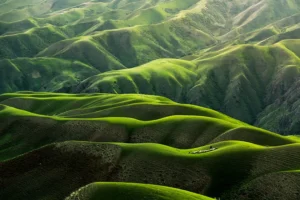12 Pros And Cons Of Fracking

Hydraulic fracturing or fracking, represents one and the same extraction process that injects a high pressure fluid into shale beds to release the oil and natural gas resources located in the underground rock.
To understand what are the pros and cons of fracking, you first need to understand how fracking actually works.
What Are The Pros and Cons Of Fracking And How Does Fracking Work?
The fracking process involves a shaft that is drilled deep into the earth (at a depth of several hundred meters) and from there a horizontal hole is drilled into the rock or group of rocks containing the shale gas layer.
A fracking fluid is then pumped into the ground until it reaches the layer of rocks where the shale gas is located.
Usually, the fracking fluid consists of several million liters of water, a few thousand tons of sand and about 200 tons of chemicals.
The fracking fluid penetrates into the rock layer and generates tiny cracks (the sand keeps the cracks open) and the chemicals have the role of killing bacteria, condense water and dissolve minerals.
In the next phase, the fracking liquid is pumped out almost entirely and this way the natural gas can be recovered from the rock layer.
When the gas source is exhausted, the fracking fluid is pumped back into the drilling hole and the well is sealed.
Pros Of Fracking
The fracking process generates several advantages for the economy.
1. Ensures access to new deposits of oil and natural gas
Hydraulic fracturing is not a new extraction technique, it is already known from the ’40s, but due to the fact that natural deposits of natural gas have been almost exhausted, about a decade ago, fracking has become popular again because it allowed access to the new reserves of oil and natural gas located in the deep layers of the underground rock.
Fracking has become this way a very popular extraction process, especially in the U.S. where at least 60% of all new oil and natural gas wells are drilled using the fracking technique.
2. Lower prices
One of the main advantages of fracking is represented by the lower prices for oil and natural gas.
The fracking technique has created an abundance of oil and natural gas in the market, which lowered the prices pretty much.
Even today, after a decade of fracking, the prices of oil and natural gas are pretty low, which creates the premises for a future, in which natural gas replaces the more polluting fossil fuels such as coal and oil.
3. Improved Air Quality
In terms of carbon emissions, natural gas is considered a cleaner energy source than coal and oil.

How much CO2 is produced when burning different types of fossil fuels to generate energy.
Natural gas is cleaner than coal, oil and even propane, and if we start using natural gas instead of coal and oil to generate electricity, less carbon emissions will be released and the quality of the air that we breathe will improve.
4. Promotes the use of natural gas instead of coal and oil
Any country that has shale gas deposits can harvest the natural gas layers located in the underground rock and can rely on this fossil fuel to generate a cleaner energy than the energy generated when burning coal and oil.
A country with good deposits of shale gas can reduce the imports of coal and oil from other countries, which keeps the money in the country and strengthens the economy.
5. Reduces the imports of foreign oil and gas
Hydraulic fracturing or simply fracking is an extraction technique used to harvest shale gas and oil.
A country with shale gas deposits can also have oil deposits associated with the shale gas, and the fracking technique will be used to harvest oil along with natural gas.
The new deposits of oil could reduce the imports of foreign oil, which again keeps the money in the country and strengthens the economy of that country.
Finding new reserves of natural gas through hydraulic fracturing reduces the imports of foreign gas.
6. Creates a large number of new jobs
Fracking started about a decade ago to create new jobs in the extraction sector, and since then, it generated tens of thousands of new jobs in the sector.
Giving the fact that fracking is an extraction technique that will continue to be used in the future, it is more than obvious that it will keep creating new jobs in the U.S. and in many other countries.
Cons Of Fracking
Fracking might be a technique that can provide a good source of natural gas for the economy, but has many disadvantages, which affects the environment and the people living near the extraction sites.
1. Contaminates the underground fresh water sources
The primary disadvantage of fracking consists in the contamination of the fresh water sources located in the underground layers of soil.

Trucks aligned to unload the ingredients used in the fracking fluid in Texas.
The combination of chemicals used in the fracking process is highly toxic (some of them are hazardous while others are extremely toxic and carcinogenic such as formic acid and benzol) and can reach the layers of underground water which will become contaminated with deadly substances.
However, due to regulations, fracking might be banned in a few countries because in some cases, the local water supplies have been contaminated with chemicals used in the fracking fluid.
More than that, areas in which fracking was used to extract shale gas, suffered even months after sealing the drilling hole due to frequents quakes.
The water contamination can be so severe that the water can’t be cleaned not even if we are using a treatment plant.
In the U.S., many fresh water sources located in the underground rock, have been already contaminated during the fracking process due to negligence.
People living close to an extraction area are very affected by this issue.
2. Releases greenhouse gases
Another major issue generated by fracking is related to the release of greenhouse gases.
Almost all the natural gas recovered from the underground layers of rock consists largely of methane, which is a greenhouse gas much more dangerous than carbon dioxide.
During the fracking process, about 3% of the extracted methane escapes into the atmosphere.
Burning natural gas to generate electricity releases less carbon emissions than burning coal, but the extraction process for natural gas increases the greenhouse effect on the planet, which leads to global warming and climate change.
3. Creates quakes
Hydraulic fracturing creates way in the underground rock till the deposits of oil and shale gas, but the highly pressurized liquid that penetrates the rock and is left inside when the drilling hole is sealed, creates unprecedented quakes in and around the extraction area and affects the people that live there.
4. Consumes a large quantity of water
The fracking fluid pumped into the ground consists in a very large quantity of water.
On average, 8 million liters of waters are used in a fracking process, which represents the daily water consumption of 65,000 people.
Because toxic chemicals are introduced into the fracking fluid, the water is contaminated and can no longer be used.
5. Creates noise pollution
People living close to the extraction area will be affected by the noise generated by the fracking process.
It is like a low humming vibration noise that can be heard day and night (during the night gets stronger because the other noises are not present).
People living in such areas are very affected by the noise problem, some of them cannot sleep during the night.
6. Turns people’s attention towards natural gas instead of renewable energy
The fracking boom has turned people’s attention to oil and natural gas instead of developing new renewable energy sources such as new wind farms and solar power plants.
Conclusion
The abundance of oil and natural gas on the market generated by the fracking boom lowered the price of oil and gas and made the people forget (at least for a while) about renewable energy and electric cars.
Hydraulic fracturing is considered the extraction technique that has ensured a large quantity of natural gas and oil on the market, but at the same time it affects the environment and can ruin the life of the people living close to the extraction sites.







